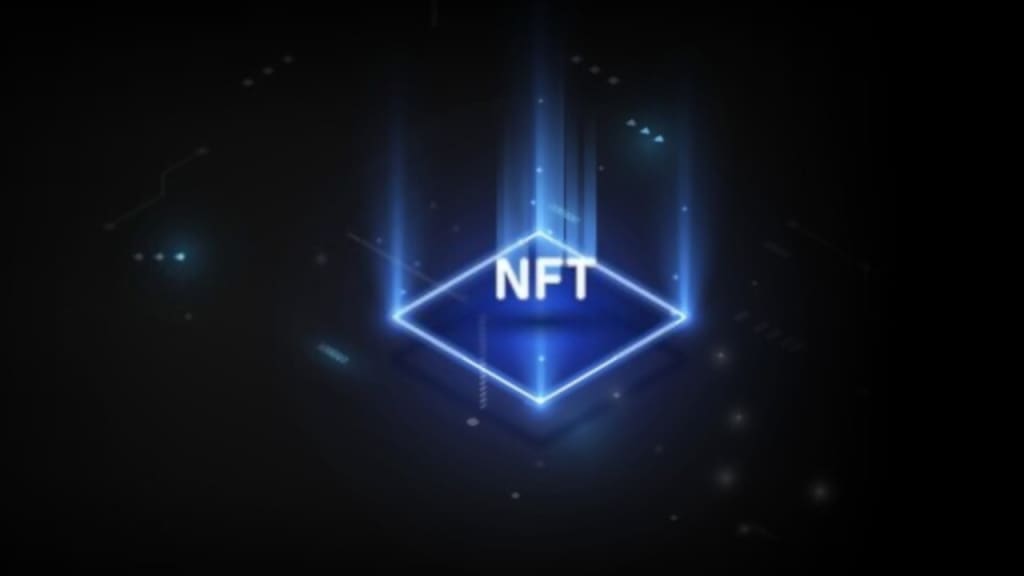The Top Best NFT Marketplace Development Ideas For Your Startup
Exploring the Benefits of NFT Marketplace Development for Your Startup

NFT Marketplace Development refers to the process of building an online platform that allows individuals and businesses to buy, sell, and trade non-fungible tokens (NFTs). NFTs are unique digital assets that are stored on a blockchain network, making them scarce and valuable.
The development of NFT marketplaces has gained significant momentum in recent years, particularly in the world of art, music, gaming, and sports industries. These marketplaces provide a secure and transparent platform for artists, creators, and collectors to monetize their digital creations, such as artwork, music, videos, and even tweets, by converting them into NFTs.
The NFT marketplace development process involves several steps, including platform design, smart contract development, wallet integration, and user interface development. Developers must also consider factors such as scalability, security, and user experience when building an NFT marketplace.
Overall, the development of NFT marketplaces has opened up new opportunities for creators and collectors in the digital realm, and the technology is expected to continue to evolve and impact various industries in the future.
What Are The Benefits Of A NFT Marketplace?
There are several benefits of an NFT marketplace, including:
- Monetization of digital creations: NFT marketplaces allow creators to monetize their digital creations, such as artwork, music, videos, and other types of content that would have been difficult to monetize before.
- Increased transparency and security: NFTs are stored on a blockchain network, which provides a high level of transparency and security for buyers and sellers. The immutable nature of blockchain technology also ensures that ownership and authenticity of NFTs can be easily verified.
- Global accessibility: NFT marketplaces provide a global platform for creators and collectors to connect and transact, regardless of their physical location.
- Reduced transaction fees: The use of blockchain technology in NFT marketplaces eliminates the need for intermediaries, such as galleries and auction houses, which can reduce transaction fees for buyers and sellers.
- Diversification of investment: NFT marketplaces provide a new avenue for collectors to diversify their investment portfolios beyond traditional asset classes, such as stocks and real estate.
- Authenticity and provenance: NFTs are unique and traceable, which helps to establish the provenance and authenticity of digital creations. This is especially important in the world of art, where provenance and authenticity are critical factors in determining value.
Overall, NFT marketplaces offer a range of benefits to creators, collectors, and investors, and the technology is expected to continue to revolutionize various industries in the coming years.
The Development Process For Creating A NFT Marketplace
The development process for creating an NFT marketplace involves several steps, which include:
- Define the project scope: This involves defining the goals and objectives of the NFT marketplace, as well as identifying the target audience, features, and functionality required.
- Choose a blockchain platform: NFTs are stored on a blockchain network, so choosing the right blockchain platform is essential. Ethereum is the most commonly used blockchain platform for NFTs, but other options like Binance Smart Chain, Polygon (previously Matic Network), and others are gaining popularity.
- Smart Contract Development: The smart contract is the backbone of the NFT marketplace, which contains the rules and conditions for the NFTs to function. The smart contract should be developed by experienced blockchain developers to ensure that it is secure and free of bugs.
- Develop the user interface: A user-friendly interface is crucial for the success of an NFT marketplace. The user interface should be designed to provide easy navigation, efficient search, and attractive visuals.
- Wallet integration: An NFT marketplace requires wallet integration to allow users to store, send, and receive NFTs. The wallet integration should support the blockchain platform used in the marketplace.
- Testing and deployment: Once the development is complete, it's essential to test the platform rigorously to ensure that it is secure and free of bugs. Once the testing is complete, the platform can be deployed to the mainnet.
- Launch and maintenance: After the deployment, the NFT marketplace needs to be launched to the public, and continuous maintenance and upgrades should be carried out to ensure that the platform is up-to-date and secure.
Overall, the development process for creating an NFT marketplace is complex and requires expertise in blockchain development and UI/UX design. It's essential to work with experienced developers to ensure that the platform is secure, functional, and user-friendly.
How Will Users Interact With Your NFT Marketplace?
Users will interact with an NFT marketplace in several ways, depending on their role on the platform. Here are some examples:
- Creators: Creators will use the marketplace to mint their digital creations into NFTs, set prices, and list them for sale. They will also be able to view their sales history, manage their inventory, and withdraw funds.
- Buyers: Buyers will browse the marketplace to find NFTs that they are interested in purchasing. They will be able to view NFT details such as the title, description, image, and price. If they decide to purchase an NFT, they will need to connect their wallet to the marketplace and complete the transaction.
- Collectors: Collectors may use the marketplace to search for and purchase rare and unique NFTs, which they may add to their collections. They will be able to view the NFT details and interact with other collectors on the platform.
- Investors: Investors may use the marketplace to find valuable NFTs to invest in. They may also monitor the NFT market trends and use data analysis tools to make informed investment decisions.
- Curators: Curators may use the marketplace to discover emerging artists and curate collections of NFTs. They may also organize exhibitions and events featuring NFTs.
Overall, the interactions between users and the NFT marketplace will be facilitated by the user interface, which should be designed to be user-friendly, efficient, and secure. The marketplace should also provide clear instructions on how to use the platform, and offer customer support to help users with any issues they may encounter.
What Challenges Will You Face When Creating Your NFT Marketplace?
Creating an NFT marketplace can be a challenging task due to several factors, including:
- Blockchain complexity: NFT marketplaces are built on blockchain technology, which is complex and constantly evolving. Developing and maintaining the blockchain infrastructure required for an NFT marketplace requires specialized knowledge and expertise.
- Security risks: As with any platform that involves financial transactions, NFT marketplaces are susceptible to security risks, such as hacking and fraud. Ensuring the security of the platform and user data is essential.
- Scalability: NFT marketplaces require a high level of scalability to accommodate the growing number of users and transactions. Scalability challenges can arise due to the limitations of the underlying blockchain technology.
- User adoption: The success of an NFT marketplace depends on user adoption. Building a user base and attracting creators and collectors to the platform can be challenging, especially in a crowded market.
- Regulatory challenges: The regulatory landscape around NFTs is still developing, and there is uncertainty about how NFT marketplaces will be regulated. Ensuring compliance with relevant regulations and laws can be challenging.
- Intellectual property issues: NFTs involve the creation and sale of digital assets, which raises issues around copyright, trademark, and other forms of intellectual property. NFT marketplaces need to ensure that they have appropriate policies in place to address these issues.
Overall, creating an NFT marketplace requires careful planning, specialized knowledge, and expertise in blockchain technology, security, and user experience. Overcoming the challenges involved in creating an NFT marketplace will require a proactive approach, continuous learning, and adaptation to the evolving market trends and user needs.
Conclusion
In conclusion, the development of an NFT marketplace requires a deep understanding of blockchain technology, security, user experience, and market trends. NFT marketplaces have several benefits, including enabling creators to monetize their digital creations, providing collectors with a way to own unique and rare digital assets, and allowing investors to invest in the NFT market. However, creating an NFT marketplace is not without its challenges, such as blockchain complexity, security risks, scalability, user adoption, regulatory challenges, and intellectual property issues. Overcoming these challenges requires a proactive approach, continuous learning, and adaptation to evolving market trends and user needs. With the right team, expertise, and planning, it is possible to develop an NFT marketplace that provides value to creators, collectors, and investors alike.
About the Creator
Angelika Candie
Blockchain Analyst & Technical Content Writer






Comments
There are no comments for this story
Be the first to respond and start the conversation.